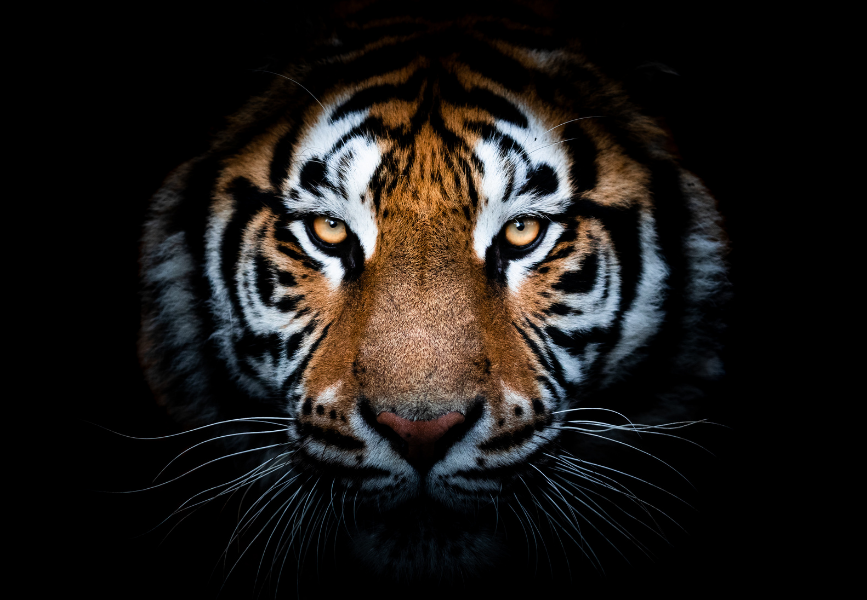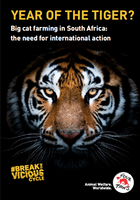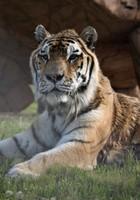
YEAR OF THE TIGER?
An investigative report into the big cat farming in South Africa and the need for international action
2022 – The Chinese Year of the Tiger – marks 12 years since world leaders aimed to double wild tiger populations.
More than a decade later captive tiger numbers have soared due to a multimillion-dollar tiger and big cat industry.
The Problem
South Africa is intensively breeding lions, tigers and other big cats for commercial trade in live animals and their body parts.
There are hundreds of ‘farms’ in South Africa that actively breed four of the big cat species (tiger, lion, leopard and jaguar). The trade is primarily to Asian countries where there is a strong demand for big cat body parts to be used as luxury items or for traditional medicines, contravening international agreements.
The lack of effective regulations for the keeping and breeding of all big cats in South Africa, and the existence of a legal lion bone trade, has allowed a somewhat legal industry to flourish whilst also acting as a conduit for an illegal trade.
The Solution
South Africa needs to end the commercial breeding of all big cats and the export and commercial trade in live animals and parts. To achieve this, the following actions need to be taken:
- A ‘Grandfather Clause’ (i.e., transitional provisions) be introduced where current owners can keep the animals but must stop all breeding and let the animals live out their lives in as natural way as possible with their needs and welfare met.
- Increase detection and law enforcement efforts in respect of big cat parts smuggling at key entry and exit points within South Africa.
- Increase detection and law enforcement efforts in respect of killing and processing of big cats for traditional medicines at private facilities.
- Increase awareness amongst key stakeholders such as customs, police and other enforcement agencies, airlines, and shipping companies regarding the modus operandi of wildlife trafficking syndicates.
The UK is also in the spotlight
Despite the report highlighting the worrying big cat trade in South Africa, a global change is needed if we are to reverse the decline of the world’s big cat species. Captive breeding, canned hunts and the sale of the parts and derivatives from South Africa fuel the commercial big cat trade and whilst the UK may not have its own large-scale big cat farming facilities, the country is directly supporting the trade by allowing the blood sport of trophy hunting to thrive.



